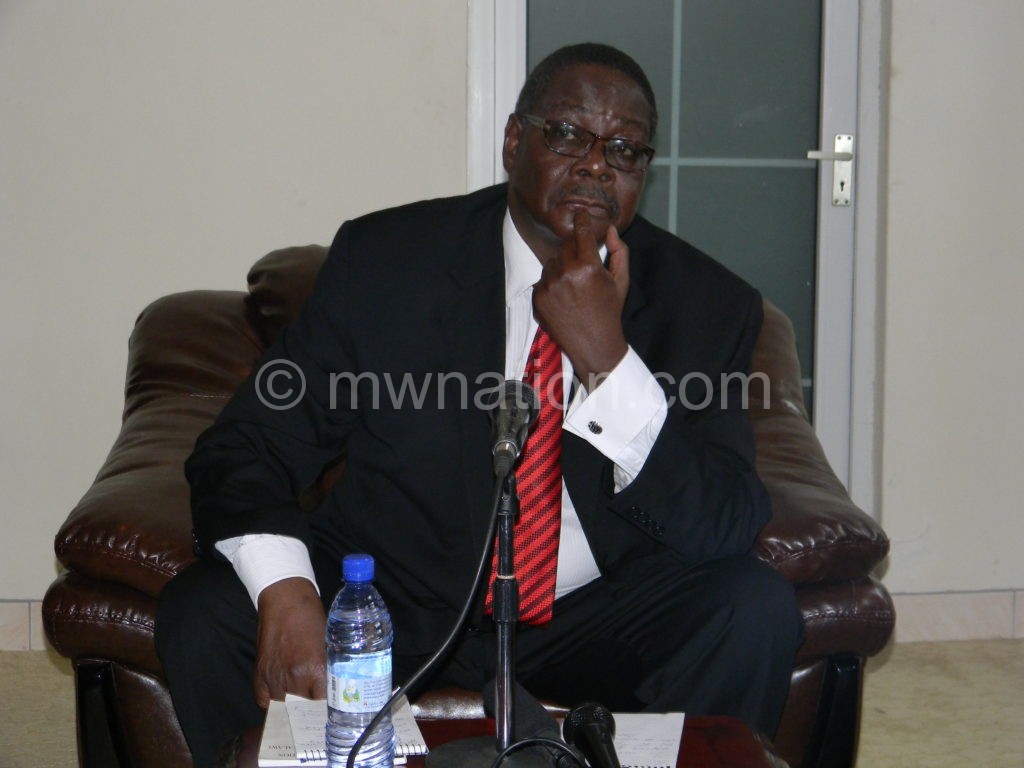Poverty worst in Malawi
Fifty-six years after independence, Malawi’s path to growth remains depressed as the latest GPI report has revealed a continued slump on global prosperity rankings.
The 2020 Global Prosperity Index (GPI) released on Monday in the United Kingdom (UK) shows the country has attained an overall score of 45.7 points, the worst performance in a decade.
This puts Malawi on position 132 out of 167 countries analysed in 2020 based on 12 different pillars of prosperity.
The best prosperity score for the country in the last 10 years was achieved during the reign of President Bingu wa Mutharika in 2011 when Malawi was ranked 121 out of 167 countries.

The report, published by the London-based think-tank Legatum Institute, discusses how Malawi has performed over the past decade compared to other African countries as well as to the global average and identifies her strengths and weaknesses. The data is from 2010 to 2020.
On individual pillars of prosperity, the country has a mixed performance doing well in six sectors and performing poorly in six others but in an e-mail interview Legatum Institute director of metrics Shaun Flanagan said the country’s overall score was an average of scores for the 12 pillars in 2020.
There are 12 measures of prosperity namely living conditions, health, education, governance, safety and security and social capital. Others are personal freedom, natural environment, economic quality, market access and infrastructure, investment environment and enterprise conditions.
Flanagan said the country had seen a significant decline in the inclusive society’s domain where since 2010 it has dropped by 97 ranks for social capital to 157 in the world and falling 39 ranks for safety and security to 106.
He observed since 2010 personal and family relationships, social networks, institutional trust, and civic and social participation have all deteriorated.
Flanagan observed that despite the country’s enormous potential it had still seen a decline in its prosperity and where progress has been made, it has done so at a slower rate than many other nations. But it is the 22nd most prosperous country in Sub-Saharan Africa which has 46 countries.
“However, we are encouraged by Malawi’s relatively high performance in personal freedom [position 88], governance [87] and natural environment [86] and its decade of improvements in living conditions, health, and education,” he said.
However, according to Flanagan, Malawi has over the last decade seen a significant improvement in investment environment, enterprise conditions, market access and infrastructure, living conditions, health, and education, although it is still ranked relatively low in all these pillars.
The Legatum Institute findings were issued the same day Mo Ibrahim Foundation also released the Africa Governance Report that shows a decline in overall governance progress ranking Malawi 23rd out of 54 countries, dropping by five places in 2019.
In general, the 2020 Global Prosperity Index indicates Malawi has dropped by nine places during the past 10 years from position 123 in 2010 to 132 in 2020.
The data in the Index shows during the past 10 years in which Malawi had three presidents, the worst perfomance occured during the reign of Peter Mutharika.
He took over from Joyce Banda in May 2014 the country was on position 122 out of 167 countries but the performance declined each year.
In 2015 the country fell to position 123, in 2016 it was on position 125 in 2017 it was ranked 129 while it rose in 2018 to 127 but fell to 131 last year.
University of Malawi (Unima) political scientist Ernest Thindwa observed the country’s downward spiral on the prosperity index was inevitable.
Thindwa, a political and administrative studies lecturer at Unima’s Chancellor College, said the 10-year period could “accurately be described as a lost decade”.
He said: “It is a period we experienced unprecedented parasitic private accumulation of wealth by the ruling clique, their cronies and their business collaborators at the expense of sustained national development.
Social and governance commentator Makhumbo Munthali felt the continued slump in prosperity performance indicates a mismatch between the politicians’ rhetoric and the lived realities of the majority of Malawians.
“The situation has been worsened by the fact that the governments we have had for the past decade majored in investing in projects that have no much bearing in alleviating poverty and spurring prosperity and economic growth but for political gains,” he said.
Munthali, just like Thindwa, felt while the country has had several developmental blue prints such as Malawi Growth and Development Strategy Ill and Vision 2020, they are largely guided by political aspirations of the ruling elites.
“Aspirations that have often been narrowest and serving the selfish interests of a few at the expense of the larger good. Consequently, this has widened economic inequalities.
Government spokesperson Gospel Kazako declined to comment on the findings saying: “We [Tonse Alliance] are not part of that slumping. We are four months in government and we can’t be judged together with what others did,” he said.





